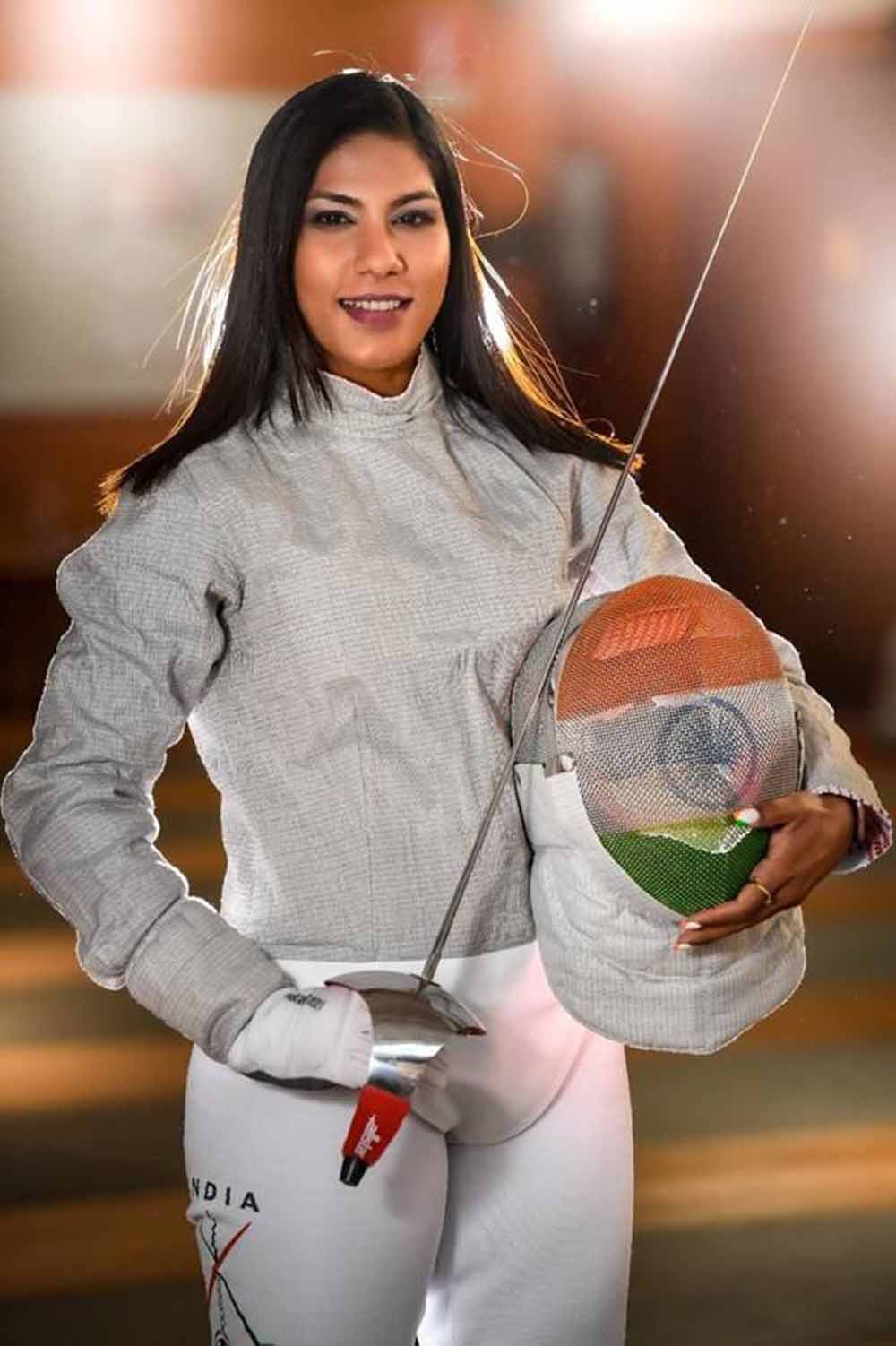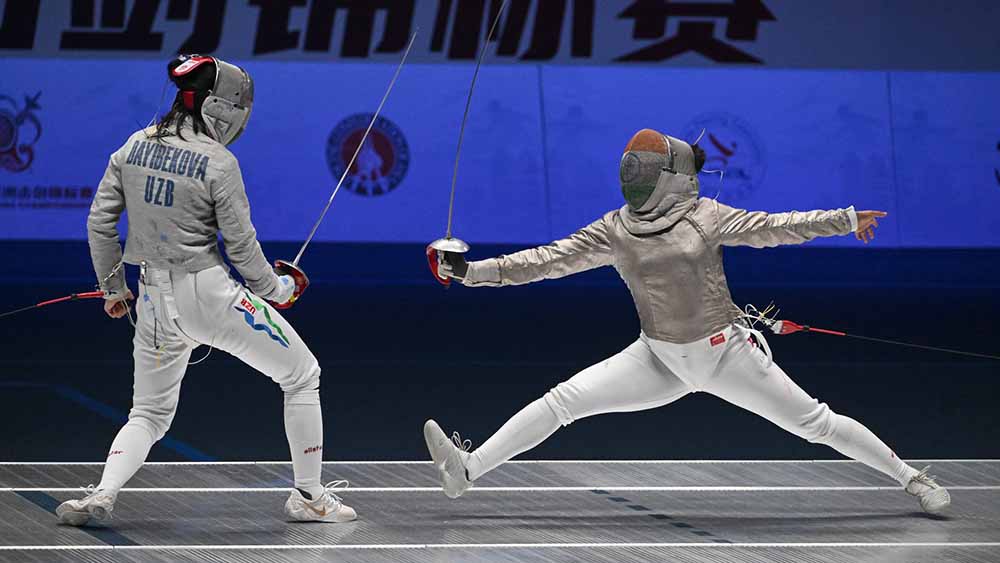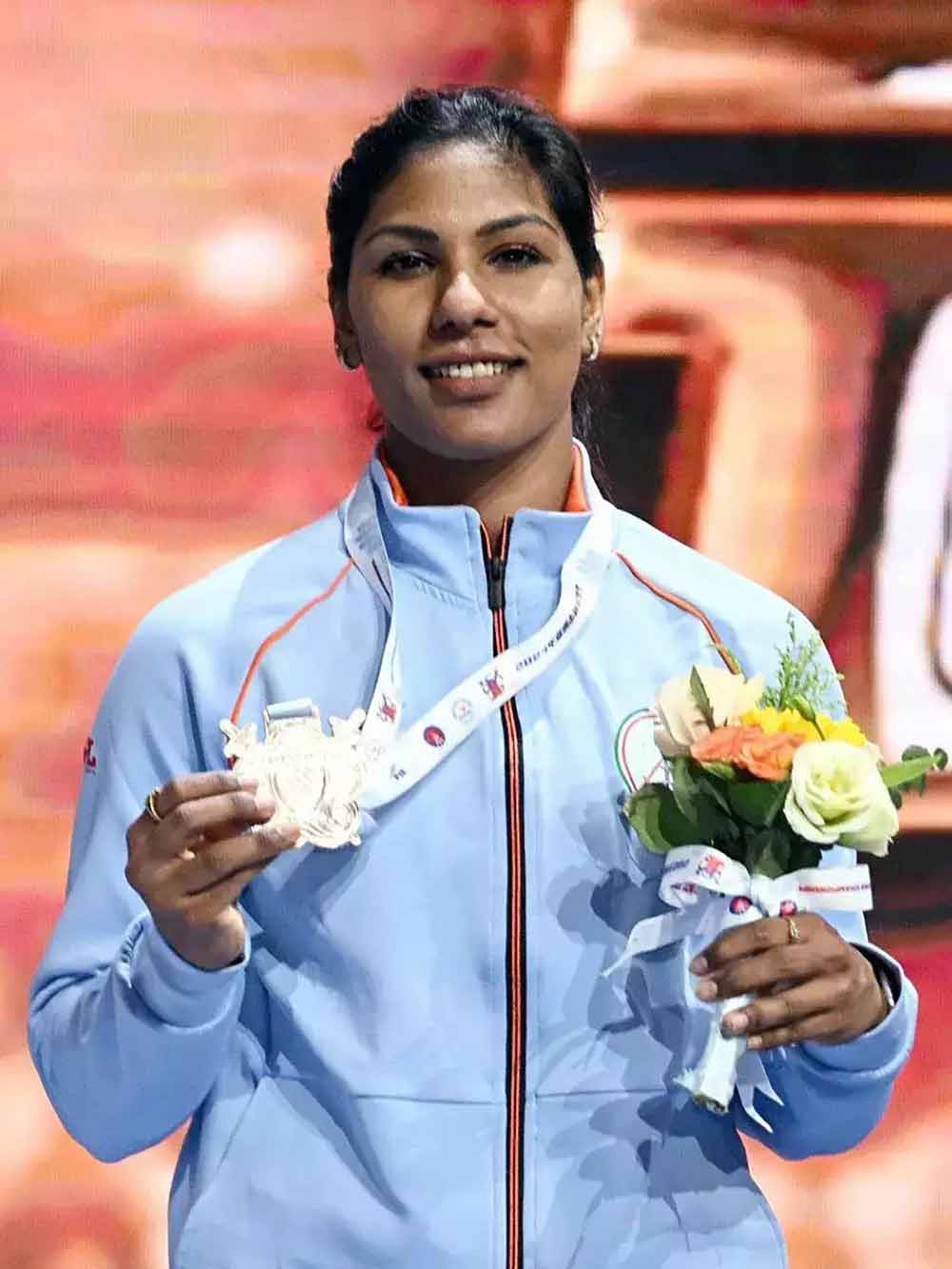In 2009, 17-year-old Bhavani Devi won her first international medal in Fencing, with a team bronze at the 2009 Junior Commonwealth Championships in Malaysia. Three years later, she nabbed the bronze medal at the 2012 Junior Commonwealth Championships in the USA. Young Bhavani was on the path to career success. At the U-23 Asian Championships in 2014 and 2015, she won silver and bronze. Her journey from a ten-year-old girl, who took up fencing because it was a ‘new activity to try out’, has been nothing short of remarkable.
‘In my 6th standard, the Government introduced a few new sports in our school,’ she explains. ‘Besides fencing, there were squash, boxing, and a couple of other options. At the time it didn’t matter which sport I picked – I intended to join any one of them. Since all the other sports were filled with the required numbers, the last option was fencing.'
It took Bhavani very little time to know she wanted to do this professionally. She would start training at 5 am and head to school directly from there. After school, she would again go directly to the stadium and finally return home only around 8 pm after a full evening’s training – and this would also depend on the bus schedules! ‘It was like this for five years, until my 10th grade. We didn't have an indoor hall. It was an open concrete floor space. Sometimes it would rain. Other times it would be really hot. But I enjoyed every session, even though there was no proper equipment.’

Due to financial challenges, Bhavani started her training with bamboo sticks
She adds, ‘Fencing is an expensive sport. In the initial stages of playing the sport, it was very difficult for me to buy the equipment. During the first 3-4 years, I had just one equipment, which I would use for competitions alone. For training, I used broken swords or bamboo sticks. Even during competitions, I didn’t always have all the right equipment. For instance, sometimes I didn’t have the wires, so I had to borrow them. I would wait for someone to finish their event and get their equipment for my matches. It was also difficult for my parents to pay the entry fees of about ₹200 or ₹250 for each category in these contests, but they still supported me. I qualified for many international tournaments, but couldn’t go due to lack of financial support. Even now, I regret the fact that I missed out on junior category international awards significantly, because I could never take part in any junior world level competitions initially.’
Bhavani recalls that her mother used to take loans against her jewellery, paying high rates of interest since the loans weren’t from a bank. However, once she started proving her mettle, support from the Government was forthcoming, along with scholarship programmes. ‘I wouldn’t say it was extremely lucrative, but at least I could go for one or two competitions. Eventually, I got more support from the Tamil Nadu State Government after a few years, and I could afford to represent the country at all the international tournaments. In the beginning, I would travel alone. I could not take my coaches along because of the expenses. It was only from 2018-19, that I started doing that. Support from the Central Government and Tamil Nadu State Government has really helped, as well as the GoSports Foundation.’

Representing India on international platforms & creating history
In 2016, Bhavani moved to Livorno, Italy to work with Nicola Zanotti - a renowned fencing coach, and also to gain experience sparring with some of Europe’s ace fencers. Since then, she’s won a silver and bronze in individual events at the Women’s World Cup in 2018, and gold at the 2018 and 2022 Commonwealth Championships. Earlier this year, she defended her title in the women’s individual sabre category at the Senior National Fencing Championships and went on to win the bronze at the Asian Fencing Championships in China.
‘My family always encouraged me from the beginning, even though it was beyond our financial means to pursue a sport like fencing. Yes, from the outside they were scared because fencing looks dangerous. Initially, they wondered if it was the right sport for a girl, but they’ve always supported my dreams.’
Among her memorable moments, she counts winning the gold medal at the Satellite Fencing Championship in Iceland in 2017. It was India’s first senior international gold in Fencing. ‘I won my first gold in an international competition. When I turned around to share my happiness, I had no one. Other athletes had their coaches, but there was no one with me to share that special moment. However, the win gave me confidence and motivated me. Making it into the top 16 in the world in 2019 has also been memorable. Of course, the Tokyo Olympics are a memorable event in my career. The journey, the hard work, the sacrifices… qualifying for Tokyo really made me forget about all the dark and difficult moments. In Tokyo, my mother accompanied me and watched me play. She was in a different hotel and I was at the Olympic Village. She travelled alone from her hotel to the venue, which was 45 minutes away, without knowing the language. I’ve learnt that determination from her. If you want to achieve something, nothing can stop you. You will one day reach your goal.’

The future of fencing in India
Bhavani firmly believes that fencing as a sport should be included in schools and colleges, more fencing centres should be introduced with proper equipment and support staff, and India should conduct international competitions in the sport.
When she was on the cusp of her sporting career, she would observe athletes and sportspeople like Sania Mirza, Sachin Tendulkar and PT Usha on TV, whom she admired and aspired to be like. Even now, she says many world-class athletes across the country continue to inspire her to work harder and achieve more than she has.
‘I want to do my best. I don’t want to feel any regrets after I leave this sport,’ she says, ‘I always wanted to achieve big things, be on a world-level podium. Every day I work harder and harder to turn my dreams into reality. My family’s support has been my strength. It has taken determination, discipline and hard work to get there – both mine and my parents’. I was focused, and I’m still very focused. For the last 10 years, it’s been just fencing for me. Even for the future, my primary goal is to do my best for my country.’